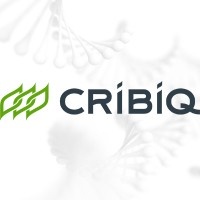
The Economic Security Program for Cree Hunters
At a glance
- No Condition
- Unspecified
- Agriculture, forestry, fishing and hunting
- Quebec
- All legal structures
- All revenue ranges
- All organization sizes
- Indigenous Peoples
Overview
The Economic Security Program for Cree Hunters provides an annual income to support traditional activities like hunting, trapping, and fishing, with a maximum funding of up to $60 per day spent in the bush. Eligible activities include wildlife harvesting, equipment fabrication, berry picking, and managing the wildlife environment.
Activities funded
- Wildlife harvesting activities, excluding commercial fishing.
- Manufacture or repair of equipment used for hunting, fishing, and trapping.
- Preparation of food reserves, clothing, housing, equipment, and land management necessary for exploitation activities.
- Gathering and preparation of small fruits.
- Treatment, transportation, and marketing of products from exploitation activities.
- Domestic production of craft items from exploitation products.
- Correctional work, safeguarding, and improvement of wildlife.
- Wildlife inventories or management to aid exploitation activities.
- Travel between camps and exploitation activity locations.
- Work as a member of a local program committee, up to ten days per year.
- Time spent in required firearms handling courses, up to three days per year.
Eligibility
- The applicant must live in the province of Québec.
- The applicant must be at least 18 years of age.
- The applicant must practice harvesting and related activities as a way of life on traditional territory.
- The applicant must be the head of the family, defined as "the member of a family who habitually is the chief provider for the needs of such family, taking into account established Cree custom."
- The applicant must be on the Eligibility list prepared by the Local Committee.
- The applicant must spend at least 120 days conducting harvesting and related activities, with at least 90 days spent away from the settlement.
- The applicant must spend more time harvesting than working for a wage income.
- The applicant must earn more from harvesting than from wage labor.
Who is eligible?
- Cree beneficiaries as defined in Chapter 3 of the James Bay and Northern Québec Agreement, holding a Cree Beneficiary Number.- Individuals at least 18 years of age residing in Québec.- Persons who live a lifestyle on traditional territory that includes hunting, fishing, and trapping as primary activities.- Heads of families who are chief providers according to established Cree customs.- Those who spend significant time (minimum 120 days) conducting harvesting and related activities in the bush and earn more from these activities than wage labor.
Eligible expenses
- Fabrication or repair of gear for hunting, fishing, and trapping.
- Preparation of food reserves, clothing, shelter, equipment, and land for harvesting activities.
- Gathering and preparation of berries.
- Processing, transportation, and marketing of products from harvesting activities.
- Domestic production of handicrafts from harvesting products.
- Corrective work, conservation, and enhancement of wildlife.
- Wildlife inventories or management in support of harvesting activities.
- Travel between camps and harvesting activity locations.
- Work as a member of a local program committee, up to a maximum of ten days per year.
- Time spent on mandatory firearms handling courses, up to three days per year.
Eligible geographic areas
- Cree beneficiaries within the territory governed by the James Bay and Northern Québec Agreement.
- Residents of the province of Québec.
How to apply
- Step 1: Contact Local AdministratorReach out to the local administrator in the Cree community where you reside.
- Step 2: Gather Required InformationEnsure you have your Cree Beneficiary Number as per the James Bay and Northern Québec Agreement.
- Prepare to provide estimates of days to be spent in the bush for the year, any other income sources, and your family status.
- Step 3: Application MeetingSchedule and attend an interview with the local administrator.
- During the interview, present a calendar marking the days you intend to spend in the bush.
- Update any changes to your family status, income, and any other relevant information.
- Submit any required forms and documentation as instructed by the local administrator.
- Step 4: Submit ApplicationEnsure your application with the local administrator is submitted within the designated application period, between July 1 and July 31.
Additional information
- Benefit payments are issued in person at quarterly interviews with the local administrator, conducted in September, January, April, and June.
- Beneficiaries will receive a Statement of benefits (Relevé 5 and T5007 slips) by mail before the end of February each year.
- The consort of the file can request separate payments by meeting with their local administrator and signing a form.
- Payments can be affected by changes in family status or income, which must be reported to the local administrator immediately.
- The Cree Hunters Economic Security Board has information exchange agreements to verify if a beneficiary receives Social Aid benefits, which cannot be combined with this program's benefits.
- Any income from employment is considered in benefit calculations, with 40% of the income deducted from the Basic Amount.
- Beneficiaries must inform their local administrator of temporary or seasonal work to prevent overpayments.
Frequently Asked Questions about the The Economic Security Program for Cree Hunters Program
What is the The Economic Security Program for Cree Hunters?
Who is eligible for the The Economic Security Program for Cree Hunters program?
What expenses are eligible under The Economic Security Program for Cree Hunters?
Who can I contact for more information about the The Economic Security Program for Cree Hunters?
Where is the The Economic Security Program for Cree Hunters available?
Is the The Economic Security Program for Cree Hunters a grant, loan, or tax credit?
Who are the financial supporters of the The Economic Security Program for Cree Hunters?
More programs like this

Support for biofood exports - individual projects
Ministry of Agriculture, Fisheries and Food (MAPAQ)
Innovative Projects Program
Hydro-Québec
Technoclimat
Environnement Québec (MELCC)
Biofood Innovation Program Component 2 – Applied research, experimental development and technological adaptation
Ministry of Agriculture, Fisheries and Food (MAPAQ)
Aboriginal Aquatic Resource And Oceans Management (AAROM) Program
Fisheries and Oceans Canada (DFO)
Call for innovation projects in artificial intelligence and quantum technologies – collaborative industrial research and support for entrepreneurship
Gouvernement du Québec
Regions and Rurality Fund (RRF) - Component 1 - Support for regional outreach
Gouvernement du Québec
CRIBIQ — PARTENAR-IA — Industry
Consortium de recherche et d'innovations en bioprocédés industriels au Québec (CRIBIQ)
Extend the employment periods of your staff — Partnership and workforce matching component
Gouvernement du Québec